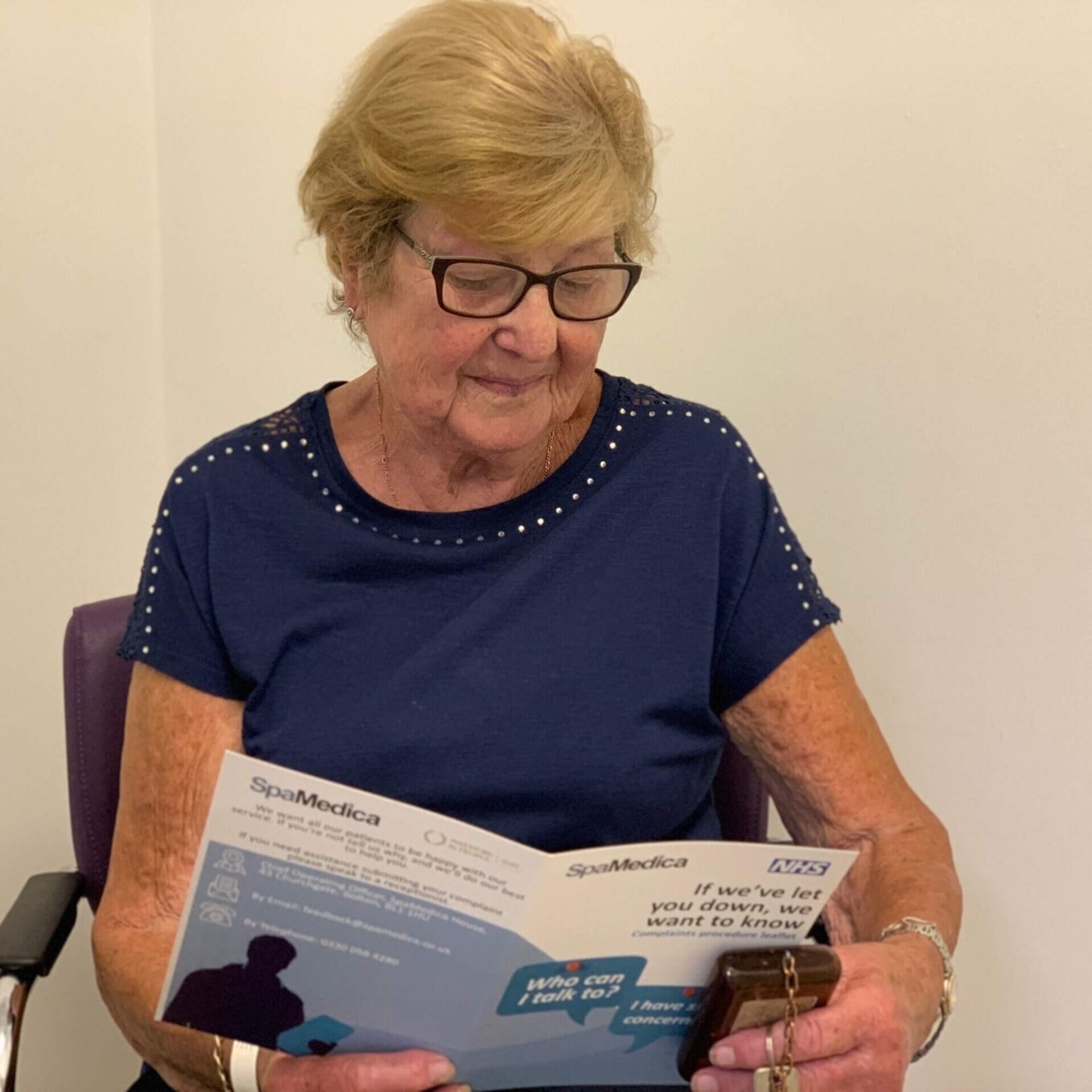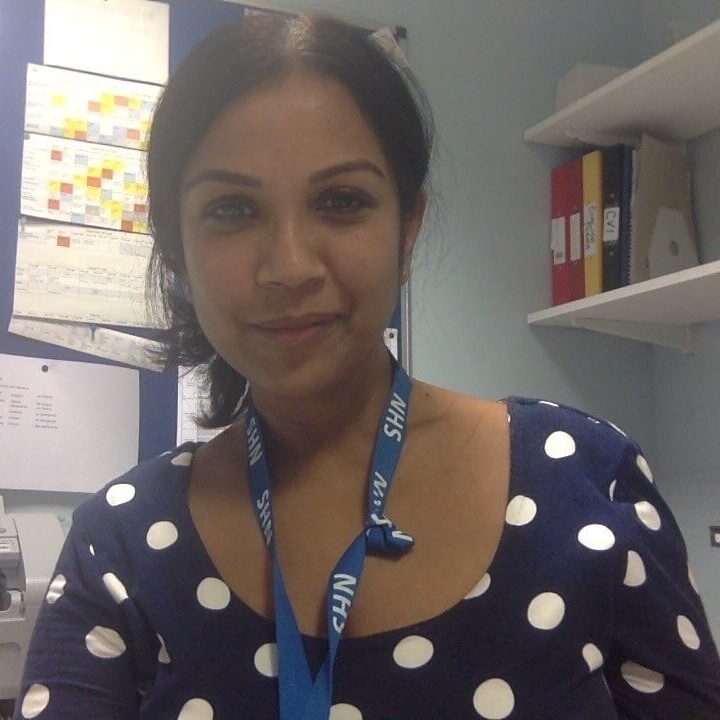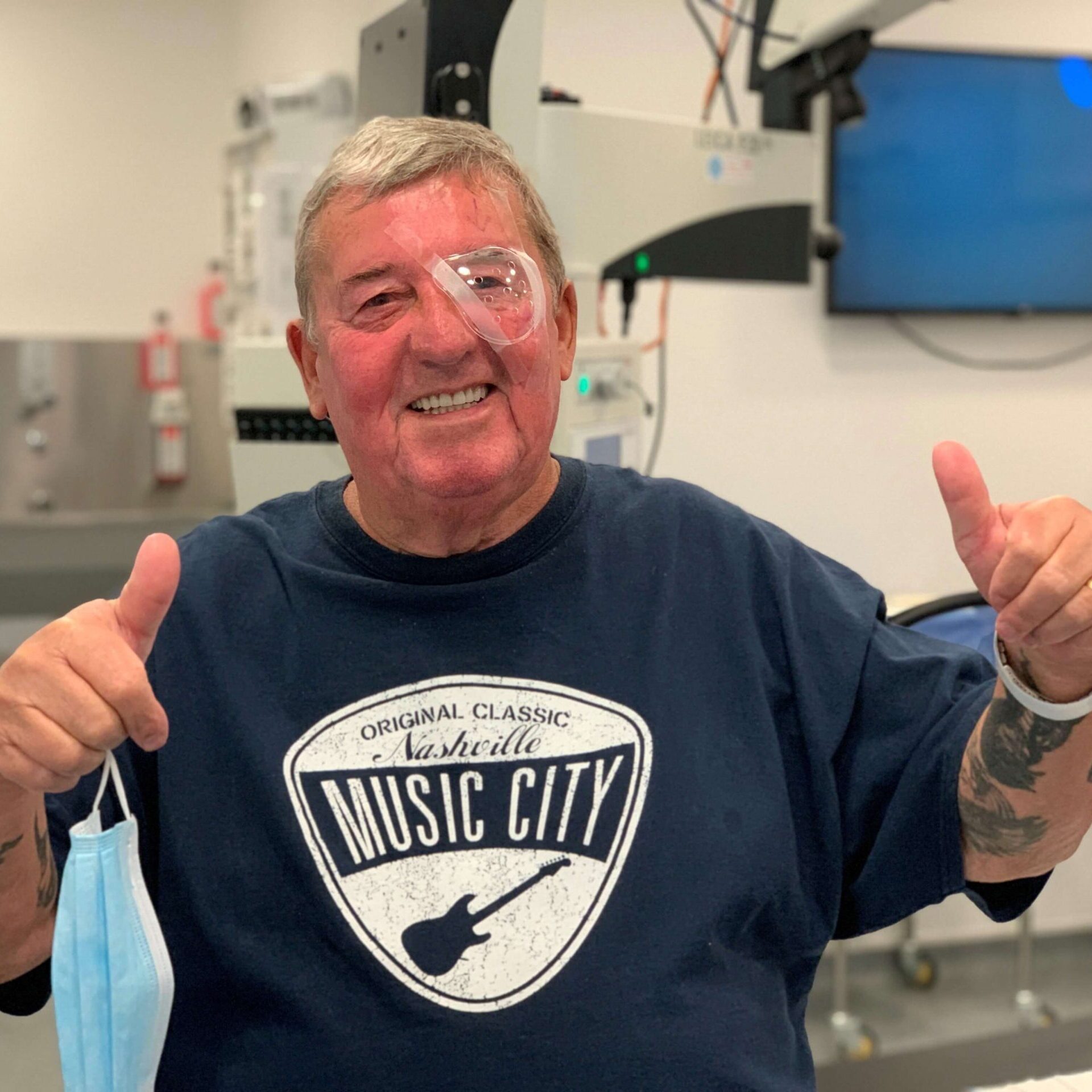Your journey from consultation to surgery
To arrange a consultation at a time convenient for you, please call us on 020 3137 3237 or complete the the online form to request a call back.

You will need to bring the following items to your consultation:
- All your current glasses.
- A recent copy of your current glasses prescription, if you have one.
- A printed list of any current medication from your GP.
- A record book (if you’re diabetic or taking Warfarin) and a contact number of a relative/friend.
- Remember If you wear contact lenses, you must leave them out before attending the consultation so that accurate measurements can be performed to determine the strength of the required lens implant.
- The amount of time you have to leave them out varies depending on the type of lens you wear
– Soft contact lenses – two weeks
– Gas permeable contact lenses and hard contact lenses – four weeks
During your eye examination, your pupils will be dilated which causes blurred vision and sensitivity to light, you won’t be able to drive; so it’s important to make sure you organise a lift or arrange transport to/from the Clinic.
What happens at your Consultation Session?
Welcome – When you arrive at your treatment clinic, you will be warmly welcomed by one of our friendly reception team members and directed to the clinic. You will be seated in our clinic reception and offered complimentary tea and coffee. Your eye health journey will then begin with a thorough consultation carried out in person by Tahmina Pearsall which will last about 1.5 hours (and includes about 20 minutes to allow your pupils to dilate)

Using the latest state-of-the-art technology Ms Pearsall will capture detailed measurements of your eyes, discuss your work and hobbies with you and how your vision affects them. She will ensure your surgical plan is the most optimal for you.
Ms Pearsall will examine your eyes and conduct a sight test to check the quality of your vision and check that you are fit for the operation. It is very important that you feel free to ask any questions you may have about your surgery at any time.
1. Vision test – we will check your vision using the same letter chart as your optician
2. Eye pressure – We will measure your eye pressure which is important test for glaucoma.
3. Pupils dilated – Drops are placed in each eye to make the pupils larger so we can examine the eye.
4. Eye diagnostics – The biometry test provides a reading that enables us to calculate the power of the intraocular lens (IOL) required for your cataract surgery.
5. Additional tests – additional tests may be required for those with pre-existing eye conditions or if you’ve had previous eye surgery or laser treatment. These include imaging tests; one takes a cross-section image of your retina and the other measures and checks the shape of your cornea.
If you have had laser treatment, it is very important that you let us know during your assessment and if possible bring any documentation about your eye measurements before the laser treatment.
Excimer laser treatment affects the calculations that are used to determine the strength of lens implant that is inserted. Even though allowance is made for the laser treatment, it is more difficult to select the power of the lens implant and patients are at higher risk of being more or less long/short-sighted than planned following the cataract surgery. This may require spectacles or contact lenses to be worn or may be correctable with further excimer laser surgery or further intraocular surgery.
6. General healthcare – you will have some simple health screening at this appointment and we will note any current health and what regular medication you are taking (both prescription and non-prescription) and check your blood pressure and temperature. We will talk you through the best option for you explaining everything thoroughly and answering any questions you may have.
7. Consent – Ms Pearsall takes time to discuss with you the details of your cataract surgery, the benefits that you should get from the surgery and also the risks of surgery. She will check that you understand everything and ask you to sign a consent form, which lets us know you give your permission for your surgery to go ahead. Please let us know if you have a lasting power of attorney (LPA) or require support for giving consent.
8. The final stage of your appointment is to book a date for your surgery choosing a time and date to suit you – this is usually about two weeks following your consultation. You will be provided with a comprehensive patient information booklet on cataract surgery, which includes what you can expect at each stage of your patient journey.
Your Cataract Surgery Day!
Cataract surgery is a relatively straightforward operation and is the most common operation performed in the UK today.
It is very normal to be anxious about your surgery, but rest assured we will support you through every step on your surgery day; we’ll put your mind at ease, explain what is happening and discuss any concerns you may have, making you as comfortable as possible.

- There are NO needles – all the anaesthetic and medication for your eyes is administered by eye drops so there is no need to worry about any needles and injections.
- Average time for cataract surgery is 5 to 10 minutes – but you will be at the hospital on the day of your surgery for about 2 to 3 hours
- The time given for your appointment is the time you should arrive at the hospital and NOT the time of your surgery.
- It is important to make sure you organise a lift or arrange transport – your eyes will be dilated for surgery and this causes blurred vision and sensitivity to light, so you won’t be able to drive. If you’re struggling to find transport please speak to the hospital who will be able to advise on local taxi services.
- We recommend eating a light meal before you arrive at the hospital.
- Please take all your medications as normal, unless we have specifically advised you not to, and if you require any specific treatments such as an inhaler, bring these along.
When you arrive
- Welcome – You will receive a big smile and warm welcome from one of our friendly reception team. They will check your details against your medical records, and take you to the patient waiting area. There will be complimentary tea, coffee and biscuits for you and your family/friends/carer.
- Arranging pick up – Our reception team will ask contact details of the person who will be picking you up after your surgery and we will give them a ring when you’re ready to go home. Your family/friends/carer is also welcome to wait in the reception area once you are called through to the surgical ward – this is normally about a 2 to 3 hour wait.
- Nurse pre-surgery check – You’ll be called through to the surgical ward where you’ll be greeted by one of our skilled and friendly nurses, who will spend about 5 to 10 minutes with you. They’ll take your blood pressure and temperature and check all is OK for your surgery to go ahead.
- Surgical ward – the nurse will show you through to the surgical ward. It is very important for your pupil to be fully dilated for surgery and so there will be up to 45 minutes waiting time on the surgical ward to allow the pupil to fully dilate.
- Consultant pre-surgery check – Ms Pearsall will check through your details and make sure you’re all OK with everything before taking you through to surgery. Please feel free to ask any further questions you may have. An arrow will be drawn above the eye you are having surgery on – don’t worry, this is standard procedure for all surgical operations.
- Pre-surgery – One of the surgery team will call you through to the surgery preparation room to get you ready for surgery. The nurse will administer anaesthetic drops to numb your eye. We give you a couple pieces of protective clothing to pop on before surgery – a cap and shoe covers. If you wear a hearing aid we ask that this is removed at this point and the nursing team will look after this and give it back to you straight after your surgery. The nurse will make sure you understand what will happen next and you can ask any questions you may have to make sure you are happy with everything.
- The nursing team will take you through to the operating theatre and help get you comfortable on the operating bed.
- The area around your eye will be cleaned using an iodine based solution; this can stain light clothing, so we advise you to wear dark clothing on your surgery day.
- A sterile sheet is placed across your head and chest; this does not lie directly on your face or head, but is held above your face and body using a bar fixed to the operating bed. The sterile sheet sticks to the skin around the eye to create a sterile zone around your eye area.
- The surgeon uses a special microscope with a very bright light, which magnifies your eye. You will be looking at this very bright light throughout the surgery and this is all that you will be able to see.You may feel the surgeon’s hands resting gently on your cheek or forehead.
- Remember please remain as calm and still as possible, you are in safe hands. If you need to move, to sneeze for example, that’s fine, just let the surgeon know – just think of it like the dentist where you have to keep your head still for a few minutes. And, as a matter of fact, many of our patients have said that they found cataract surgery a much better experience than going to their dentists!
- It’s important to keep the eye moist during surgery and so water is used to irrigate the eye and this sometimes runs down your face onto your ear or neck. This is why we ask that any hearing aids are removed before your surgery.
- The procedure lasts, on average, about 5 to 10 minutes, that’s all, and most of our patients are (pleasantly) surprised when our surgeon lets them know it’s finished!
- We have asked hundreds of patients to describe what they feel or experience during surgery and the feedback is that they just see a very bright light or bright colours and don’t feel anything. If you experience any strange or unpleasant sensation during surgery please let your surgeon know and they will give you some more anaesthetic drops.
- The sheet is removed very carefully from around your eye at the end of the surgery – this feels similar to a sticky plaster being taken off, so there is a small amount of discomfort, but this only lasts for a second or two.
- A clear eye shield will be taped over your eye to help protect the eye and prevent infection.
- One of the nursing team will support you as you get off the operating table and take you through for your post-op check.
- Surgery all done – take a deep breath and smile!
Post-surgery check
You will spend 5 minutes with one of our nurses following surgery to check you are OK and talk you through your post-surgery care at home. You’ll be given a booklet with lots of useful information on dos and don’ts and advice about what to do when you’re back home. You’re nurse will also give you important eye drops – to help prevent infection and reduce any swelling. The nurse will give you a bottle of eye drops to take over four weeks following surgery, but NOT on the day of surgery.
Recovery time
You will need about 10 to 30 minutes following your surgery to rest back in the hospital reception. We recommend having a hot drink and a biscuit and these will be offered to you while you wait.
Time to go home
We will call the contact you gave us to organise a lift home, if they’re not already waiting for you in the reception area. We recommend that you should rest quietly for the rest of the day. You may watch television or read.
Questions?
After your consultation you will receive a pack personalised to your eye care.
If you have any other questions, do get in touch.
